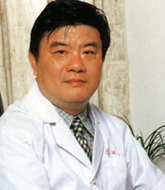| Home / Government / Appointments | Tools: Save | Print | E-mail | Most Read |
| New Health Minister Appointed |
| Adjust font size: |
Chen, 54, is the second person who is not a member of the Communist Party of China (CPC) to be given such a key appointment since the late 1970s, following the appointment of Wan Gang as Minister of Science and Technology in April this year. Wan is a member of the China Zhi Gong (Public Interest) Party. He used to be an automobile engineer at Audi Corporation in Germany. A France-trained scientist, Chen replaced 63-year-old Gao Qiang, who was assigned to the Health Ministry after former Health Minister Zhang Wenkang was sacked over the SARS crisis in 2003. Gao will serve as secretary of the ministry's leading Party members' group and vice minister, according to the document submitted by the State Council to the Standing Committee of National People's Congress. Observers said that the appointments of Chen and Wan show China's efforts to develop political democracy. "The appointments show the trust of the CPC Central Committee in non-CPC members and people with no party affiliation," an official with the United Front Work Department of the CPC Central Committee told Xinhua. In the 1950s, a number of non-Communist personages were appointed ministers in the country's cabinet, but they were dismissed after the "anti-rightist" movement in 1957. In recent years, the CPC Central Committee has issued a series of directives and recommendations to promote non-CPC members to political positions. In 2005, the CPC Central Committee ordered all local governments and departments at and above the county level to open up top jobs to non-CPC members and non-politically affiliated people. The CPC leadership also stipulated that the State Council, the country's highest administrative body, should pay particular attention to appointing non-CPC members and non-politically affiliated candidates to ministerial positions or their equivalents. The official with the UFWD said to appoint non-CPC member cabinet ministers is an important move in implementing and improving the system of the multi-party cooperation and political consultation under the leadership of the Communist Party. "It is also a strategic step in pushing forward the development of socialist political democracy," the official said. Chen, a Jiangsu native born in Shanghai, was sent to the countryside in Jiangxi Province for re-education in 1970 during the Cultural Revolution (1966-1976). During the five years in the countryside, Chen learnt medicine by himself and became a 'barefoot doctor'. In 1975 he was selected to study at a medical school in Jiangxi, and in 1978 he went back to Shanghai for graduate studies. Chen obtained a master's degree in medical science from Shanghai Second Medical University in 1981. He received his doctorate from the Institute of Hematology of Hospital Saint-Louis, connected to University Paris VII, in 1989. He was also involved in post-doctoral programs in the French institute. Back in China, he spent most of his time in Shanghai, working in hospitals and institutes on blood-related diseases and molecular immunology. Chen won international acclaim for his achievements in the clinical and molecular study of the treatment of acute promyelocytic leukemia. He got the State Scientific and Technological Award by the Chinese government and became the first non-French winner of "Prix de l'Qise" by La Legue Nationale contre le Cancer of France. He is an academician of the Chinese Academy of Sciences, the French Academy of Sciences and the United States National Academy of Sciences. His previous positions include director of the Chinese Human Genome Center in Shanghai and Shanghai Institute of Haematology at Ruijin Hospital. Before the latest appointment, Chen was vice president of the Chinese Academy of Sciences. He was said to have made great efforts to boost the development of China's life sciences and biotechnology, and attract overseas Chinese scholars and scientists back to China. (Xinhua News Agency June 29, 2007) |
| Tools: Save | Print | E-mail | Most Read |
| Related Stories |
|
|
||||||||||||
|
| Links | |||||||||||
|
